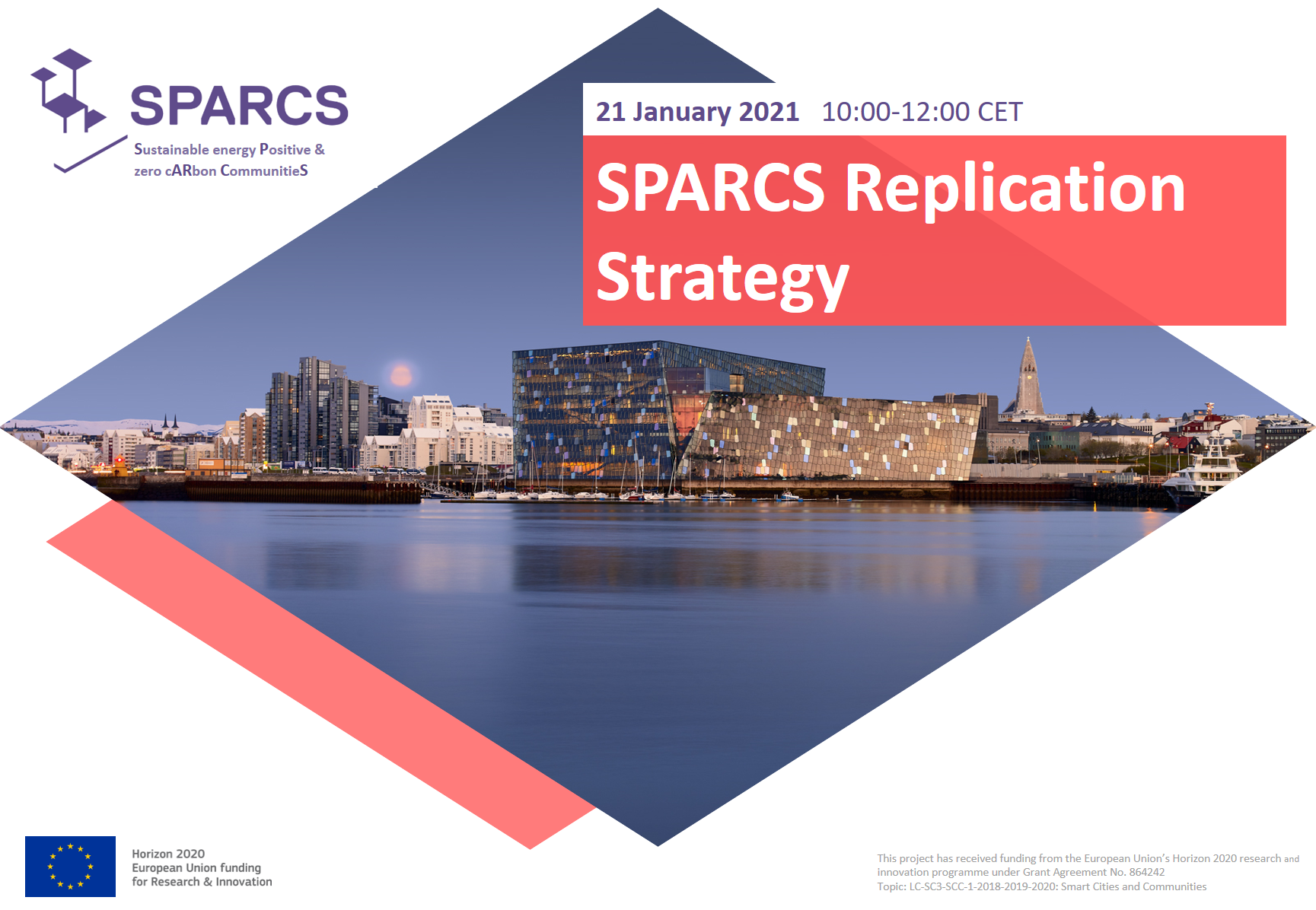SPARCS Replication Webinar – What We Have Learned
On Thursday, 21 January 2021, SPARCS organised a webinar for its partners and external stakeholders focused on the topic of replication.
The webinar began with a presentation by the moderator Pieter Bult from Fraunhofer, the leading SPARCS partner on replication. Mr. Bult introduced the SPARCS project and its actions, before concluding his presentation by introducing the topic of replication and its importance for the SPARCS Fellow cities Maia (Portugal), Reykjavik (Iceland), Kladno (Czech Republic), Lviv (Ukraine) and Kifissia (Greece).
Marielisa Padilla, also from Fraunhofer, was the next speaker who presented the replications efforts of the SPARCS project through the SPARCS City Labs based on the Morgenstadt Framework. In her presentation, Ms. Padilla expanded on the phases and processes of the SPARCS City Labs: preparation, understanding and co-creation.
- Preparation – a phase lasting approximately five months in which: the constitution of the city and Fraunhofer teams happens, the methodology is adapted to the city needs, the exchange with the involved partners occurs and desktop research and preliminary analysis are completed.
- Understanding – a phase lasting around five months in which data collection and analysis of the same, analysis of existing planning documents, preparation of the on-site assessment elaboration of city profiles are all performed.
- Co-creation –a week-long phase of on-site assessment and innovation lab with local stakeholders.
After Ms. Padilla’s presentation, real-life experiences in SPARCS cities were presented.
Magnús Yngvi Jósefsson from the city of Reykjavik showed us Reykjavik´s replication efforts. The city of Reykjavik was the first to complete the SPARCS City Lab assessment week, a process that was highlighted in this presentation. Mr. Jósefsson also spoke of the tangible outcomes achieved by Reykjavik in the first 12 months of the SPARCS project, about the SPARCS actions they are putting forward and the next steps the city will take as part of this project.
Following the presentation about the city of Reykjavik, Maia’s Marta Moreira and NEW R&D’s Luisa Serra presented the replication experiences in the city of Maia. They spoke of Maia’s replication plans, key areas, stakeholders and challenges they assessed during the City Lab experience. Ms. Moreira and Ms. Serra spoke of Maia’s implementation plan, solutions and evaluation efforts, and concluded the presentation with a discussion on the next steps in regards to the impact, scalability and replicability of their efforts.
The presentations were followed by a lively Q&A session.
The second part of the webinar was all about an interesting and interactive presentation by Gretel Schaj from BABLE. Ms. Schaj gave a stimulating presentation on use cases, solutions, replication strategy, training, project development and joint procurement as the pieces of the replication puzzle. The presentation was followed by an interactive session where, through Slido, Ms. Schaj interacted with the audience asking questions on topics such as challenges in implementing Positive Energy Districts (PEDs), possible participation in procurement processes, and topics to consider sharing knowledge about, when cities are on a quest to achieve carbon neutrality.
Mr. Bult closed the webinar by introducing the SPARCS City Forums, a tool used inside the project to share experiences and replicable knowledge between the SPARCS cities. Finally, Mr. Bult reminded the audience about the next three SPARCS webinars planned for 2021:
- SPARCS Business Models and Financing Mechanisms – April 2021
- SPARCS KPIs for replication – June 2021
- SPARCS City Vision – September 2021
We hope that all participants gained meaningful insights during our webinar! If you want to read more about the replication efforts in SPARCS and its cities, please visit our website.
Please find all the presentations and video of the webinar below.

